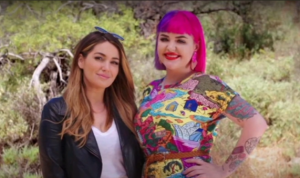The Untapped Drama of “90 Day Fiancé”: A Franchise at a Crossroads
Since its debut in 2014, 90 Day Fiancé has captivated audiences with the raw, unfiltered emotion of love crossing borders and cultures. Unlike glossy dating shows like The Bachelor, it offered an authentic glimpse into the struggles and triumphs of real couples navigating the K1 visa process and cultural divides. Yet, as the franchise ballooned with spin-offs and new seasons, something vital began to slip away — the authenticity that once made the show a fresh alternative now risks being overshadowed by recycled drama and fading originality. Fans, once enamored by compelling love stories, are growing restless as the series leans heavily into manufactured conflicts and predictable stereotypes. The challenge now is whether the network will embrace fresh casting ideas and diverse narratives that rekindle the original spirit, or continue down a path that threatens to alienate the very audience that built its fame.
The Call for Genuine Diversity: Beyond Stereotypes and Sensations
One glaring flaw in the franchise’s evolution is its missed opportunity to truly amplify diversity. Not just in ethnicity or nationality, but in authentic human experience. The frequent casting of reality TV veterans and controversial figures desperate for fame dilutes the emotional resonance that genuine couples bring. Rather than spotlighting love stories grounded in heartfelt realities, some seasons are marred by attention-seeking antics. Fans yearn for couples like Armando Rubio and Kenny Neermeer, whose narratives offer positive representation and real connection, proving that casting decisions heavily influence the show’s credibility. A stricter policy on newcomers versus reality TV repeat offenders could restore authenticity, ensuring the spotlight shines on love rather than spectacle. Diversity means more than just “checklist” inclusion; it demands carefully chosen stories that reflect the multifaceted nature of love around the globe.
Expanding Horizons: The World Beyond Familiar Faces and Places
For years, 90 Day Fiancé has repeatedly focused on certain countries—Colombia, Brazil, Thailand, and India dominate the scenes—while American cast members mostly hail from popular states like California, Nevada, and Florida. This geographic repetition breeds predictability, dulling the series’ exotic allure. Fans are clamoring for fresh backdrops and cultures—imagine love stories unfolding in Japan, Singapore, or the UAE, where cultural clashes and romantic challenges offer new layers of intrigue. Moreover, diversifying the American side beyond just hot spots would inject fresh regional flavors and social dynamics. The franchise thrives on cultural contrast, so why limit that potential? By widening its embrace, 90 Day Fiancé can re-energize its narrative, offering viewers refreshing stories where unexpected cultural collisions bring drama, laughter, and heartbreak in equal measure.
The Perilous Path of Unrelatable Storylines: When Diversity Backfires
In a bid to reflect evolving social norms, the franchise introduced thruples and unconventional relationships to its roster. While inclusivity is vital, this shift without careful storytelling risks alienating core viewers who seek relatable romance. Most couples around the world identify as monogamous, and audiences connect deepest when they see reflections of their own experiences. Complex plots involving non-traditional relationships have confused and lost some fans, as seen in season 11’s backlash. The producers face a delicate balance: push boundaries without sacrificing viewer engagement. This tale of creative risk highlights the fragility of audience loyalty — too much experiment, and the emotional connection frays. 90 Day Fiancé must learn the art of evolution without alienation, crafting narratives that welcome diversity in forms that entertain and resonate deeply.
Casting the Future: Bold Risks and Unseen Stories
If 90 Day Fiancé aims to revitalize its legacy, it must break free from recycled formulas and predictable casting zones. Imagine an American Muslim man and an Asian woman navigating familial expectations and intercultural challenges unseen on the show. Or a wealthy foreigner courting an American caught in financial hardship, a story ripe with tension and hope. These fresh dynamics promise a renaissance, bringing new voices and unheard stories that captivate viewers hungry for innovation. Above all, the show must rediscover its soul — authentic love, complex emotions, and raw cultural intersections. The clock ticks for the franchise to embrace these bold casting opportunities or risk fading into a scripted echo of its former self. The future of 90 Day Fiancé depends on its courage to evolve — not just for ratings, but to tell love stories that truly matter.





